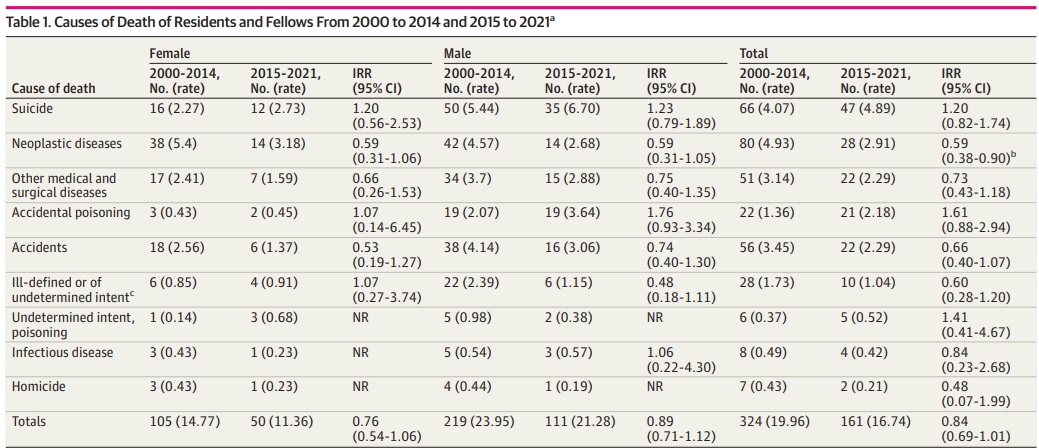Study Published in JAMA Shows Leading Causes of Death Among Residents and Fellows in the US
Researchers at the ACGME, Duke University, and Maastricht University published the results of a comprehensive study examining the leading causes of death for residents and fellows, building on a similar study completed in 2017. The study, which analyzes data from 2015 to 2021, shows death rates from cancer have decreased from the first study, while there was no substantial change in the rate of suicide.
Notably, resident and fellow death rates, including from suicide, remain significantly lower than among age- and gender-matched individuals in the general population. However, the prevalence and timing of suicides underscore the need for continued action to support resident and fellow mental health. All loss of life is tragic, and while overall resident and fellow death rates remain lower compared to those of similarly aged peers, the ACGME recognizes the critical need for enhanced well-being support systems in graduate medical education (GME).
The study reveals that suicides were most common in the first academic quarter of the first year of residency—a period of intense transition. The ACGME has developed targeted resources, including the Mental Health and Well-Being During Transitions toolkit, to help programs support residents during these vulnerable moments. Furthermore, the ACGME offers other support and well-being resources, such as the Overcoming Barriers to Mental Health Care collection for programs to utilize when notified of a resident or fellow death by suicide.

The ACGME is committed to providing clinical learning environments with tools and resources to help prioritize the physical, mental, and emotional well-being of residents and fellows across GME. The ACGME’s Common Program Requirements, which apply to all accredited programs, regardless of specialty or subspecialty, mandate that programs and Sponsoring Institutions provide access to confidential, affordable mental health care—including 24/7 urgent services—and explicitly recognize psychological, emotional, and physical well-being as foundational to professional development.
Ongoing research is needed to investigate causes and mitigators of distress. The full study can be found on the JAMA website.

